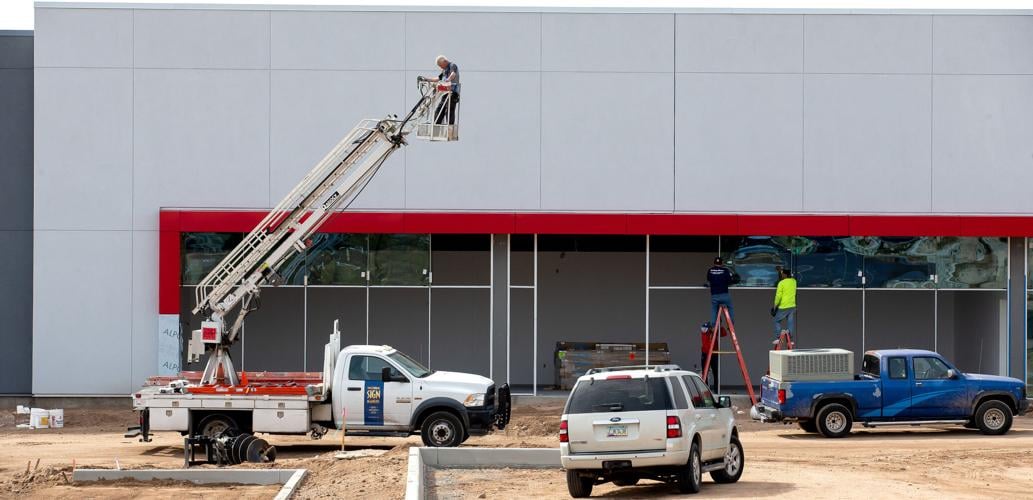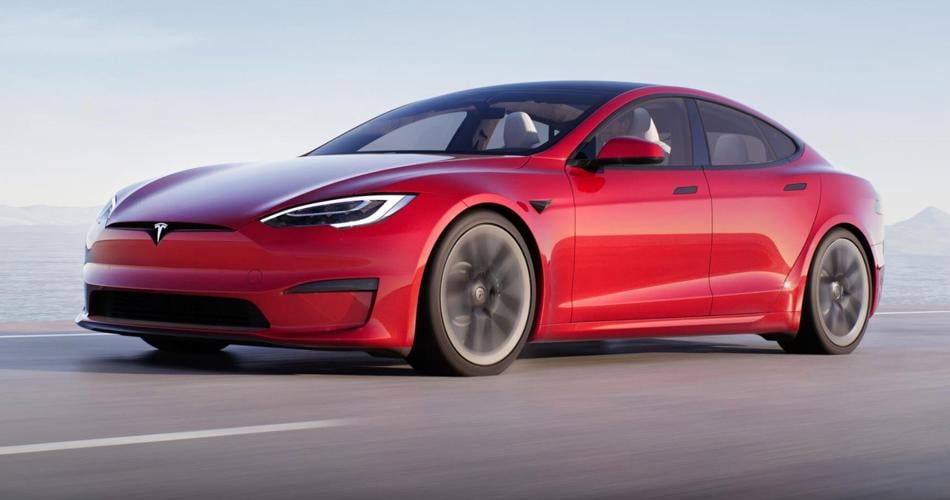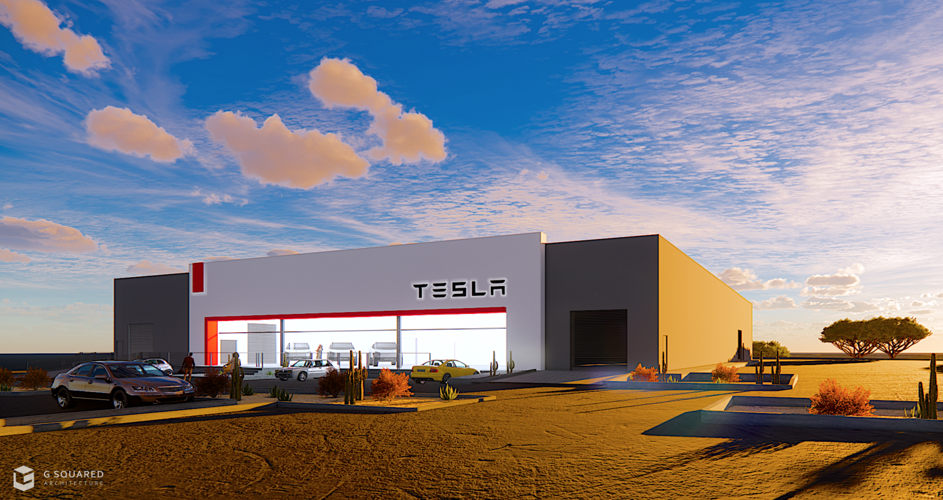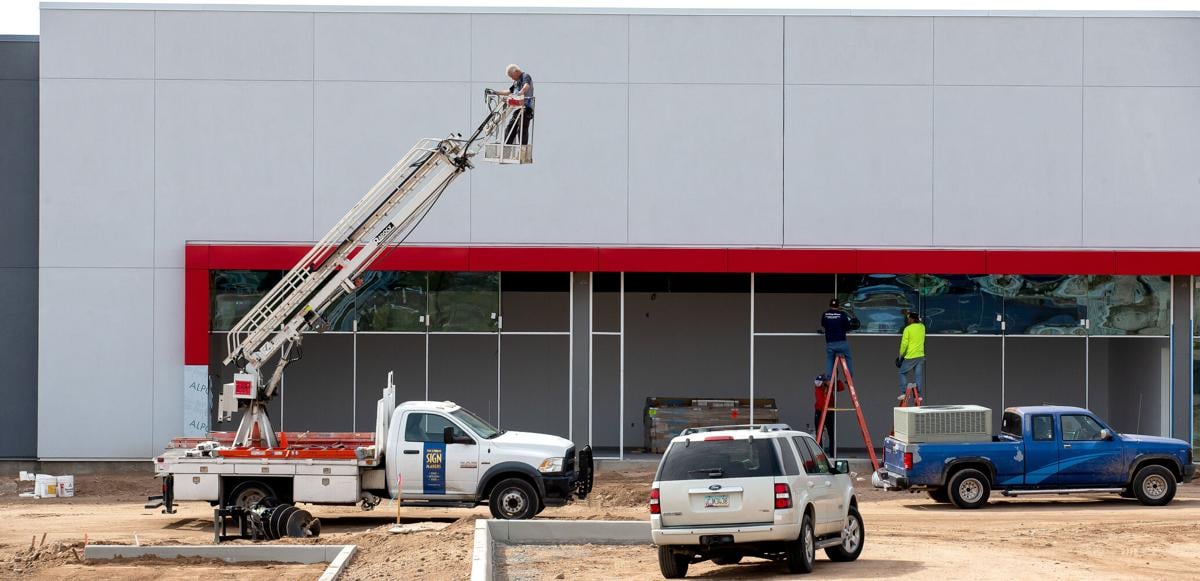Tesla Motors will open its first electric vehicle dealership and service center in Tucson this summer, as supply-chain and production issues have slowed deliveries of EVs to a trickle nationwide.
The site, at 5001 N. Oracle Road, near River Road, is about 30,000 square feet of showroom and service center with a price tag of about $5 million, city of Tucson building records show.
A sign hanging on the chain link fence around the construction site announced Tesla’s pending arrival.

Tucson's new showroom will feature the Tesla Model S(pictured), along with Tesla Models 3, X and Y and the Cybertruck.
In 2020, Tesla dissolved its public relations department and there is no mechanism for communication with the media. Getting the company’s comment on why it chose to open a Tucson dealership was not possible.
Stephen Grimm, owner of the shopping center, Keystone Fiesta Plaza, and general contractor, Blue Lion Construction, said completion is expected this summer.
The architect is G Squared Architecture.
The showroom will have Tesla Models S, 3, X and Y and the Cybertruck.
Teslas are sold mainly by pre-order, with delivery waits now ranging from six to nine months, depending on the model.

The 30,000-square-foot Tesla showroom and service center, at 5001 N. Oracle Road, is scheduled to open this summer.
EV shortage
The opening of the dealership comes as most shoppers now will have trouble finding any new EVs to buy and drive off Tucson dealer lots.
Popular, lower-priced EVs like the Nissan Leaf and the Chevy Bolt were out of stock last week and at most dealers nationwide, with delivery delays stretching into months for the Leaf, and later this year for the Bolt due to a safety recall.
Automakers blame supply-chain issues related to the pandemic and a shortage of semiconductor computer chips, which has also delayed production and deliveries of some gas-powered cars and trucks.
David Gebert, president of the Tucson Electric Vehicle Association, said EVs have been in short supply at local dealerships for the past year.
“It’s all (because of) supply-chain stuff,” said Gebert, whose group offers tips to EV newbies. “There’s really nothing for them to sell.”
Volkswagen acknowledged struggling to meet demand for the ID.4 all-electric SUV, and it didn’t help that a U.S.-bound cargo ship carrying more than 1,500 Volkswagen Group vehicles including ID.4s, Audis and Porsches caught fire and sunk off last week off the coast of Portugal.
Larry H. Miller Volkswagen in Tucson does not currently have any ID.4’s on the lot, and the dealership is taking orders for the vehicle with a delivery wait of about nine to 11 months, company spokeswoman Sara Waldman said.
Meanwhile, sports-car enthusiasts looking to buy a Ford Mustang Mach-E, the all-electric version of the iconic muscle car, are facing a delivery delay of 20 to 28 weeks, Ford says.
Demand high
Hot demand for EVs also is a factor, driven nationally by mandates to move to “zero emission vehicles” adopted by a dozen states including California.
Sales of new light-duty plug-in electric vehicles, including all-electric vehicles and plug-in hybrid electrics, nearly doubled to 608,000 in 2021, according to the U.S. Energy Department, and some analysts predict EV sales could nearly double again in 2022.
After getting nearly 200,000 purchase reservations for its new F-150 Lightning electric truck, Ford began taking orders for the Lightning in January.
The automaker says it plans to begin deliveries this spring, though it may not be able to fill all pre-orders this year. The Lightning starts at about $40,000 and can top $90,000 with all the options.
The Leaf is the lowest-priced production EV in the U.S., starting at $27,500 for a shorter-range model.
But last summer, Nissan halted production of the 2022 Leaf at its Tennessee manufacturing plant for at least six weeks due to chip shortages, and it has also delayed the rollout of its new EV, the Ariya.
And special circumstances have prompted shortages of two other popular EVs.
General Motors halted production of its Chevy Bolt EV and EUV — a sport-utility version — last fall to devote production to replacing battery packs on about 140,000 2019-2021 Bolts involved in a safety recall after a series of battery fires.
GM recently said it would restart 2022 Bolt EV and EUV production in April, when sales of new Bolts also are expected to resume.
Looking ahead, GM plans to launch several new EVs by the end of 2023, including the Cadillac Lyriq luxury SUV a Chevrolet Silverado EV pickup and a Chevrolet Equinox compact SUV.
“There’s a lot on the horizon,” said Chris Holcomb, general sales manager at O’Rielly Chevrolet in Tucson.







